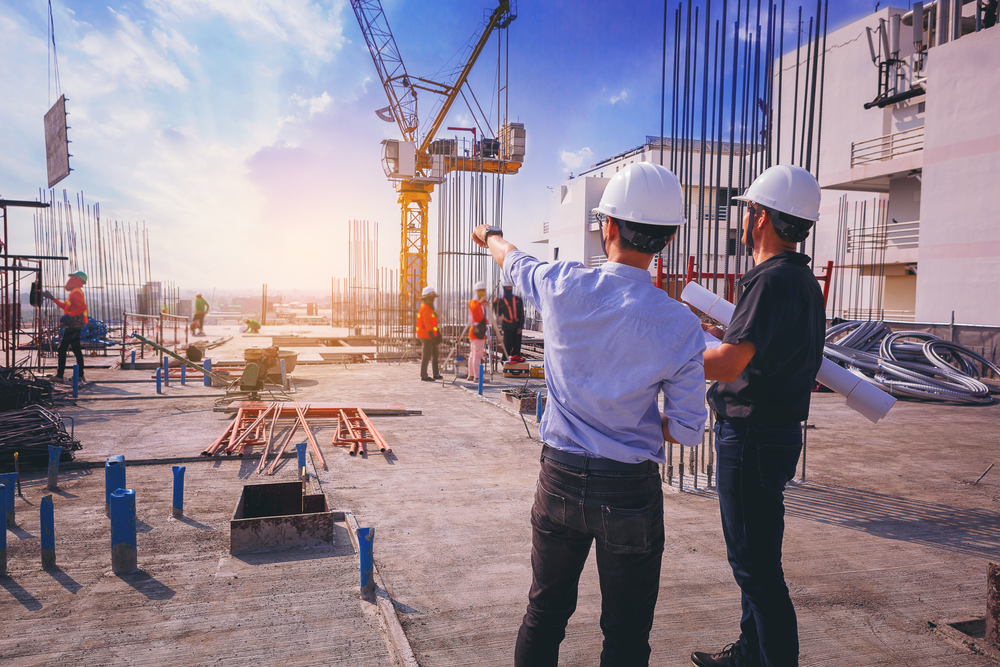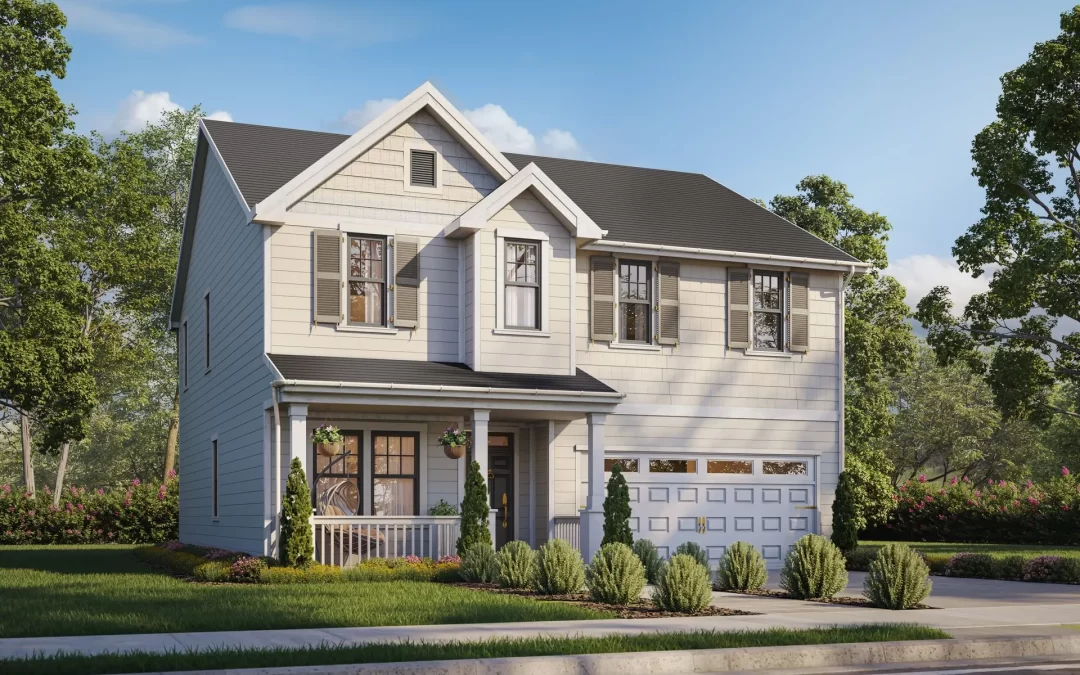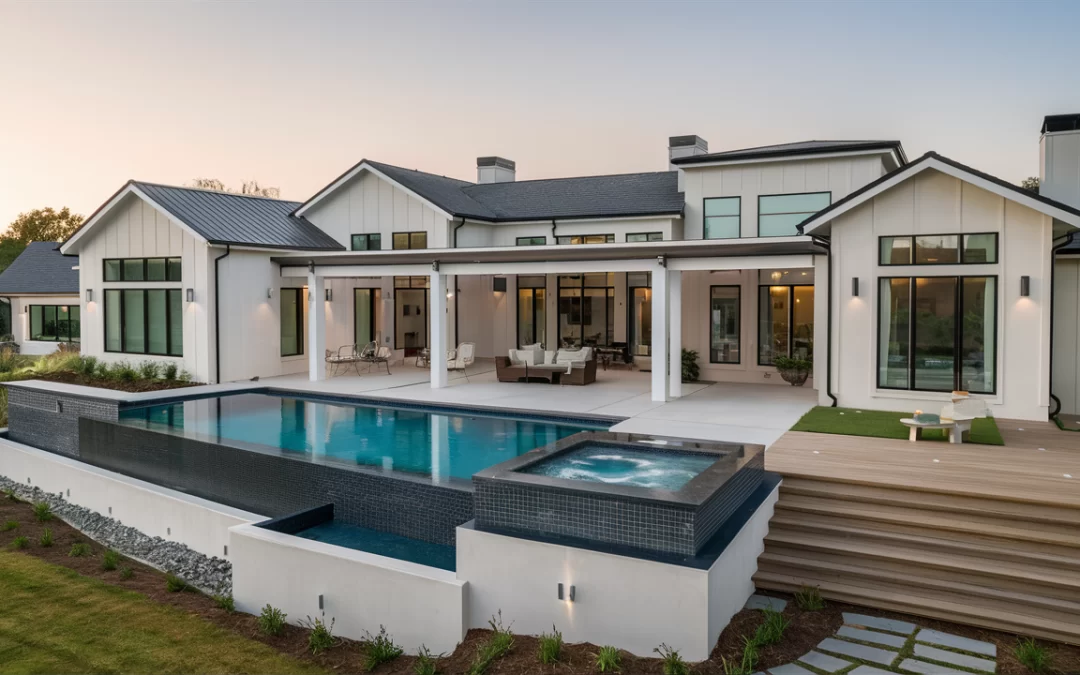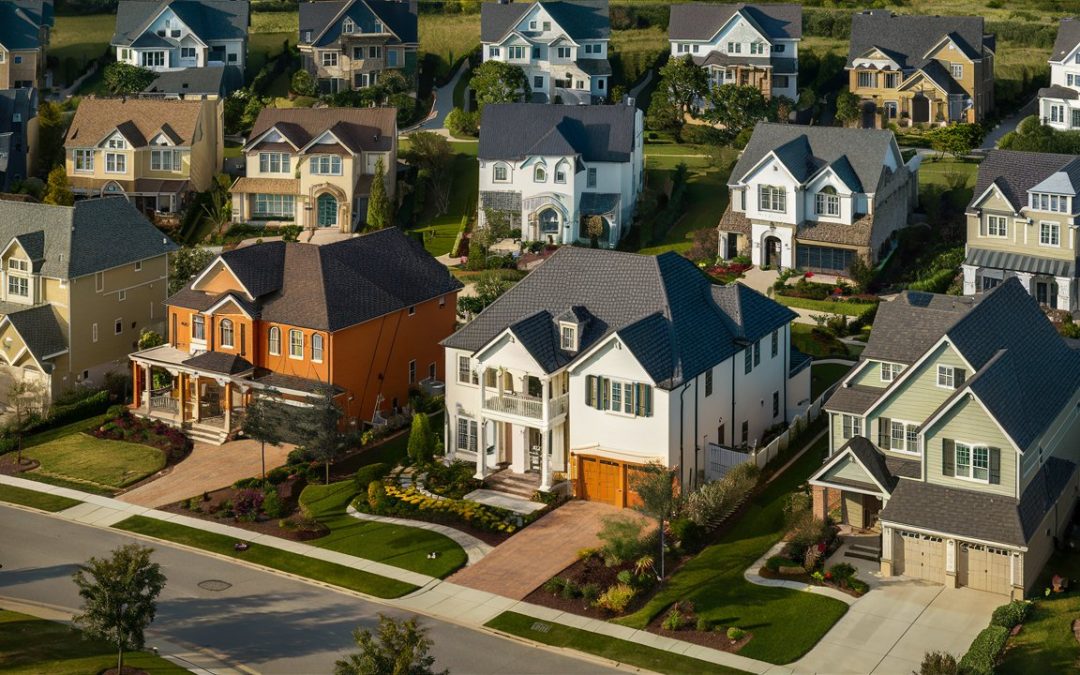
Home
Finding a reliable local home builder for your new home can be daunting, especially with the myriad of options available. Whether you’re embarking on a new construction project or looking to renovate an existing property, selecting the right builder is crucial for ensuring a smooth and successful experience. This blog will explore various strategies to help you find the ideal builder, covering different aspects of the process.
Understanding Your Needs
Define Your Project Scope
Before you begin searching for a builder, it’s essential to have a clear understanding of your project. Determine whether you are building a new home, renovating, or making additions. Knowing the specifics of your project will help you communicate effectively with potential builders and ensure they have the relevant experience.
Create a Budget
Establishing a budget is a critical first step. Consider all aspects of your project, including materials, labor, permits, and unexpected expenses. A well-defined budget will help you narrow down your options and find builders who can work within your financial constraints.
How to Find a Builder for a New Home?
Utilize Online Resources
The internet is a valuable tool for finding builders. Websites like Builder Online and Houzz offer extensive databases of builders and contractors. You can read articles, browse portfolios, and even find reviews from previous clients. These platforms often feature insights from industry experts, making them a great starting point for your search.
Seek Recommendations
Word-of-mouth referrals can be incredibly helpful. Ask friends, family, or colleagues if they have had positive experiences with builders in your area. Personal recommendations often provide insights that online reviews may not cover, such as the builder’s communication style and reliability.
Attend Local Home Shows
Home shows and exhibitions are excellent opportunities to meet builders in person. These events allow you to see their work firsthand, ask questions, and gather brochures and business cards. Engaging with builders directly can give you a better sense of their professionalism and approach.
How to Find a Local Builder?
Explore Local Directories
Local directories, both online and in print, can help you find builders in your area. Websites like Angie’s List and Yelp provide listings of contractors along with customer reviews. Additionally, local real estate agents can offer recommendations based on their experiences with builders in the community.
Visit Ongoing Construction Sites
If you notice homes being built in your neighborhood, consider visiting the site. Speak with the workers or the project manager to learn about the builder. Observing their work ethic and the quality of construction can provide valuable insights into their capabilities.
How to Find Out the Builder of a Home?
Check Public Records
If you want to find out who built a specific home, start by checking local county records. Building permits and property deeds often contain information about the builder. This public information can be accessed through your local government’s website or office.
Talk to Neighbors
Neighbors can be a great resource for finding out who built a home in your area. They may have information about the builder or the construction process. Engaging with the community can also help you gauge the builder’s reputation.
Evaluating Potential Builders
Review Their Portfolio
Once you have a list of potential builders, review their portfolios. Look for completed projects that align with your vision and style. A strong portfolio demonstrates the builder’s capabilities and gives you an idea of what to expect.
Check References
A reputable builder should provide references from past clients. Contact these references to inquire about their experiences. Ask about the quality of work, adherence to timelines, and overall satisfaction. This feedback can help you make a more informed decision.
Assess Communication Skills
Effective communication is vital in any construction project. Choose a custom home builder in Lake LBJ TX, who is responsive and willing to discuss your ideas and concerns. A builder who values open communication is more likely to create a positive working relationship.
Final Considerations
Understand the Contract
Before signing a contract, ensure you understand all terms and conditions. The contract should outline project timelines, payment schedules, and warranties. A clear agreement protects both you and the builder and helps prevent misunderstandings later on.
Trust Your Instincts
Finally, trust your instincts when selecting a builder. If something feels off during your interactions, it may be worth reconsidering. Building a home is a significant investment, and you want to work with someone you feel comfortable with. By following these strategies, you can find a reliable builder who will help you turn your vision into reality. Take your time to research, ask questions, and evaluate your options. The right builder can make all the difference in creating the home of your dreams.

Home, Uncategorized
Skilled construction workers are the backbone of the construction industry. They are essential for the success of any construction project. Here are some key reasons why builders matter and what they do daily:
Understanding Safety
Skilled workers at local custom home builders are well-versed in critical safety rules and regulations, ensuring accident prevention on construction sites. They hold regular safety meetings, employ proper safety techniques, and use necessary personal protective equipment. This ensures that all workers are aware of potential hazards and how to mitigate them.
Operating Machinery Safely
Experienced construction workers are trained to safely operate various types of construction equipment like forklifts and excavators. Hiring skilled workers helps avoid accidents caused by improper machinery use. This is crucial for ensuring that heavy equipment is handled with care and precision, reducing the risk of accidents and property damage.
Possessing Physical Strength and Endurance
Construction work is physically demanding. Skilled builders have developed the strength and stamina needed to perform manual tasks like lifting, loading, and unloading supplies over long work hours. This physical endurance is vital for completing tasks efficiently and without compromising safety.
Interpreting Plans and Specifications
Builders need strong reading comprehension and math skills to accurately interpret blueprints, specifications, and technical documents. This ensures projects are completed to the right standards. Without skilled builders, projects could be delayed or completed with errors due to misunderstandings of the plans.
Collaborating Effectively
Construction projects involve many people working together. Skilled builders have excellent communication and teamwork abilities to collaborate with their colleagues and ensure projects are completed successfully. This collaboration is essential for ensuring that all aspects of the project are coordinated and completed on time.
Providing Leadership
Experienced builders often take on supervisory roles overseeing other workers. Their leadership helps prevent mistakes, maintain quality, and promote safety. This leadership is crucial for ensuring that the project stays on track and that all workers are working together effectively.
What Does a Builder Do on a Daily Basis?
A builder’s daily tasks vary but generally include reading and interpreting blueprints, measuring and cutting materials, assembling structures, installing fixtures, and operating machinery. They also conduct site inspections, ensure compliance with safety regulations, and communicate with other team members to keep the project on track.
What Home Builder Built My Home?
To find out which builder constructed your home, you can check your home’s paperwork, such as the title deeds or purchase contract. Local building authorities or the developer of your neighborhood might also have records. If these sources are unavailable, you could try contacting previous owners or neighbors for information.
The Importance of Builders
Builders are fundamental to the construction industry. They ensure the structural integrity, safety, and aesthetic appeal of buildings. Their work affects the quality of life for residents, influences the skyline of cities, and contributes to economic development. Skilled builders ensure that projects are completed efficiently, on time, and to high standards.
The Purpose of a Builder
The primary purpose of a builder is to bring architectural designs to life, transforming blueprints into physical structures. They are responsible for ensuring that construction projects meet all safety standards, are completed within budget and on schedule, and adhere to all relevant regulations. Builders also play a crucial role in innovating and incorporating new building techniques and materials to improve the quality and sustainability of constructions.
Conclusion
Skilled construction workers are the backbone of the construction industry. Their abilities, knowledge, and teamwork are critical for completing projects efficiently, safely, and to high standards. Hiring and developing skilled builders, especially for a home builder in Kingsland, is key to the success of any construction company. Whether it’s daily tasks or broader industry contributions, the importance of builders cannot be overstated.

Uncategorized
Building a custom home offers numerous advantages over purchasing an existing property. From personalization to quality construction, energy efficiency, and lower maintenance costs, the benefits of building a custom home are numerous. However, choosing the right builder is crucial to ensure a smooth construction process and a high-quality final product. Reputable local custom home builders provide assurance of quality construction, transparent legal processes, timely project completion, and modern amenities.
Benefits of Building a Custom Home
- Personalization: Building a custom home allows you to craft spaces that align perfectly with your unique lifestyle and preferences. You can design your home to meet your specific needs, whether it’s a home office, a large kitchen, or a spacious backyard.
- Quality Construction: Custom homes involve a higher level of craftsmanship, precision, and materials compared to volume-built homes. This ensures that your home is built to last and withstand the test of time.
- Energy Efficiency: You can design custom homes from the ground up with a focus on sustainability, incorporating energy-saving appliances and superior insulation. This can lead to significant savings on your energy bills and a reduced environmental impact.
- Lower Maintenance Costs: Brand new appliances, modern plumbing and electrical systems, and high-quality materials lead to reduced repair and replacement needs. This means you can enjoy your home without worrying about frequent maintenance and repairs.
- Newer Materials: Constructing a new home eliminates concerns about potentially hazardous materials, such as asbestos or lead paint. You can rest assured that your home is built with the latest, safest materials.
Comparing Builders
When selecting a builder for your custom home, consider the following factors:
- Reputation: Choose a builder with a proven track record of delivering high-quality homes and satisfied customers. Look for builders with extensive experience in the local market.
- Transparency: Ensure the builder follows legal requirements, provides accurate paperwork, and maintains transparency throughout the construction process. This includes regular updates on project progress, budget, and timelines.
- Timely Completion: Look for a builder with a history of completing projects on schedule to avoid delays and additional expenses. Delays can be costly and stressful, so it’s essential to choose a builder who can deliver on time.
- Amenities: Reputable builders incorporate modern amenities and infrastructure to enhance your quality of life. This includes features like smart home technology, high-speed internet, and energy-efficient appliances.
- Customer Service: Choose a builder who takes a customer-centric approach, providing responsive support and addressing any issues that arise. This includes being available to answer questions, resolve disputes, and ensure your satisfaction.
How to Find a Good Local Builder?
- Ask for Referrals: Talk to friends, family, and real estate agents who have experience working with local builders. They can provide valuable insights and recommendations.
- Check Online Reviews: Research builders online and read reviews from past clients to gauge their quality of work and customer satisfaction. Look for builders with consistently high ratings and positive feedback.
- Visit Model Homes: Attend open houses and tour model homes built by the builders you’re considering. This allows you to assess their craftsmanship, attention to detail, and the quality of their work.
- Request References: Ask the builder for references from past clients and follow up with them to get a better understanding of their experience. This can provide valuable insights into the builder’s work ethic, communication, and overall performance.
- Check Licenses and Insurance: Ensure the builder is licensed and insured to protect yourself from potential liabilities. This includes verifying that the builder has the necessary permits and licenses to operate in your area.
- Evaluate Their Process: Understand the builder’s construction process, including how they manage projects, handle changes, and address issues. Look for builders who have a clear and organized approach to construction.
- Assess Their Team: Meet the team that will be working on your project, including the project manager, foreman, and subcontractors. Ensure that they are experienced, professional, and committed to delivering high-quality work.
- Verify Their Financial Stability: Check the builder’s financial stability to ensure they can complete your project without financial issues. Look for builders with a strong financial history and a stable business model.
How to Choose a Builder?
- Define Your Needs: Clearly define your needs and expectations for your custom home. This includes understanding your budget, timeline, and the features you want in your home.
- Research Builders: Research local builders that meet your needs and expectations. Consider factors like reputation, experience, and customer satisfaction.
- Evaluate Their Work: Evaluate the builder’s past work by visiting model homes, reading reviews, and checking references. This will give you a sense of their quality of work and customer satisfaction.
- Meet with Builders: Meet with several builders to discuss your project and get a sense of their approach, communication style, and professionalism.
- Get a Quote: Request quotes from the builders you’re considering. Compare the quotes, considering factors like price, quality of work, and the builder’s reputation.
- Check for Certifications: Look for builders that have certifications from reputable organizations, such as the National Association of Home Builders (NAHB) or the Better Business Bureau (BBB).
- Understand the Contract: Understand the contract thoroughly before signing. Ensure that it includes details about the project timeline, budget, and the builder’s responsibilities.
How to Find the Builder of a Home?
If you’re considering buying an existing home, you may want to know who built it. Here are some steps to help you find the builder of a home:
- Check the Property Records: Check the property records at your local county clerk’s office or online property databases. This can provide information about the builder and the construction date.
- Ask the Real Estate Agent: If you’re working with a real estate agent, ask them about the builder and the construction process.
- Check with the Homeowner: If you’re buying a home from the current owner, ask them about the builder and the construction process. They may have valuable insights and information.
- Check Online Directories: Check online directories and databases that list builders and their projects. These can include websites like HomeAdvisor, Angie’s List, or the NAHB’s Certified Graduate Builder (CGB) directory.
- Contact the Builder Directly: If you can’t find the information you need through other means, you can contact the builder directly. They may be able to provide information about the home and its construction.
Conclusion
Building a custom home can be a rewarding experience, but it requires careful planning and selection of the right builder. By understanding the benefits of building a custom home, comparing builders, and following hiring tips, you can find a reputable local builder who will deliver a high-quality home that meets your needs and expectations. Remember to prioritize factors like reputation, transparency, timely completion, and customer service when choosing a builder. With the right builder, you can enjoy a beautiful, functional, and sustainable home that you’ll love for years to come.

Uncategorized
Building your own home is one of the most significant investments you’ll make in your lifetime. It’s a process filled with excitement, anticipation, and a myriad of decisions. One of the most crucial decisions is choosing the right builder. While national firms may have a recognizable brand and extensive resources, opting for a local custom home builder offers a range of benefits that can make your home-building experience truly exceptional.
1. Personalized Service and Attention to Detail
Local custom home builders pride themselves on offering personalized service that national firms often can’t match. When you work with a local builder, you’re more than just a project number. They take the time to understand your vision, preferences, and needs, ensuring every detail is tailored to your lifestyle. This personalized approach results in a home that reflects your unique style and personality.
2. Deep Knowledge of the Local Area
A local custom home builder in Kingsland, TX, for example, possesses an in-depth understanding of the area’s unique characteristics, regulations, and climate considerations. This local expertise ensures your home is designed and constructed to withstand local environmental factors, comply with regional building codes, and blend seamlessly with the surrounding community.
3. Strong Community Connections
Local builders often have established relationships with reliable local subcontractors, suppliers, and craftsmen. These connections can lead to better quality workmanship and materials, as well as more efficient project timelines. Plus, supporting local businesses fosters a sense of community and contributes to the local economy.
4. Flexibility and Adaptability
National firms often follow a standardized process and design template, which can limit customization options. In contrast, a local custom home builder offers greater flexibility and adaptability, allowing you to make changes and adjustments throughout the building process. This flexibility ensures your home truly meets your expectations and needs.
5. Accountability and Reputation
Local builders rely heavily on their reputation within the community. They are committed to maintaining high standards of quality and customer satisfaction because their future business depends on it. When you choose a local builder, you can have confidence that they will go the extra mile to ensure your happiness and the success of your project.
6. Direct Communication and Easy Accessibility
Effective communication is key to a successful home-building experience. With a local builder, you have direct access to the person overseeing your project. This direct line of communication ensures any questions or concerns are addressed promptly, reducing the likelihood of misunderstandings or delays.
7. Support Local Economy
By choosing a local custom home builder in Kingsland, TX, you are supporting the local economy. Your investment helps sustain local jobs and businesses, fostering a vibrant and thriving community. This sense of community pride and involvement can enhance your overall satisfaction with the building process.
Conclusion
While national firms may offer the allure of a big-name brand, the benefits of opting for a local custom home builder are numerous and compelling. From personalized service and local expertise to strong community connections and accountability, a local builder can turn your home into a reality with a level of care and attention that large firms often can’t provide.
When embarking on the journey to build your custom home, consider the unique advantages of partnering with a local custom home builder in Kingsland, TX. Their dedication to quality, community, and customer satisfaction will ensure your home-building experience is as enjoyable and stress-free as possible.
Frequently Asked Questions (FAQs)
Q1: What are the main benefits of choosing a local custom home builder over a national firm? A1: The main benefits include personalized service, deep local knowledge, strong community connections, greater flexibility, higher accountability, direct communication, and supporting the local economy.
Q2: How does a local builder’s knowledge of the area benefit my home construction? A2: Local builders understand regional building codes, environmental factors, and community aesthetics. This ensures your home is well-suited to the local climate and seamlessly integrates into the community.
Q3: Will a local builder be able to handle a project of my size and complexity? A3: Yes, local builders are often highly skilled and capable of handling projects of various sizes and complexities. Their personalized approach allows them to adapt to your specific needs and requirements.
Q4: Are local custom home builders more expensive than national firms? A4: Costs can vary, but local builders often offer competitive pricing. The value they provide in terms of personalized service, quality, and community support can outweigh any potential cost differences.
Q5: How can I ensure the local builder I choose is reputable and reliable? A5: Research local builders, read reviews, ask for references, and visit previous projects if possible. A reputable local builder will have a strong track record and positive feedback from satisfied clients.
Q6: Can a local builder help with design and architectural plans? A6: Yes, many local custom home builders offer comprehensive services, including design and architectural planning. They work closely with you to create a home that matches your vision and meets your needs.
Q7: What should I look for when choosing a local custom home builder in Kingsland, TX? A7: Look for a builder with a strong reputation, local expertise, excellent communication skills, and a portfolio of successful projects. Meeting with potential builders and discussing your project in detail can also help you make an informed decision.

Uncategorized
Building a house is a complex and multifaceted project that requires careful planning, coordination, and execution. Understanding the process of building a house from start to finish can help ensure a smoother and more efficient project. Here are the essential steps in building a house, from initial planning to the final touches.
Step 1: Planning and Preparation
Define Your Needs and Budget
The first steps to building a house involve determining your needs and establishing a budget. Consider the size, style, and features you want in your home. Create a realistic budget that includes all potential costs, such as land purchase, construction, permits, and unforeseen expenses.
Find and Purchase Land
Selecting the right piece of land is crucial. Research various locations, keeping in mind factors such as proximity to work, schools, and amenities. Once you find a suitable plot, negotiate the purchase and secure the necessary documentation.
Hire Professionals
Hiring the right professionals is vital to a successful home-building process. This team typically includes an architect, a contractor, and various specialists such as engineers and surveyors. They will guide you through the steps in building a house and ensure that everything meets local building codes and regulations.
Step 2: Designing Your Home
Create a Design
Work with an architect to create a detailed design of your home. This includes floor plans, elevations, and a site plan. The design should reflect your lifestyle, preferences, and budget.
Obtain Permits
Before construction can begin, you’ll need to obtain the necessary permits from local authorities. This can include building permits, zoning permits, and environmental permits. Your contractor or architect can help you navigate this process.
Step 3: Site Preparation
Clearing and Excavation
The house construction steps start with site preparation. This involves clearing the land of any trees, rocks, or debris and leveling the ground. Excavation is then done to create a foundation for your house.
Laying the Foundation
The foundation is the most critical part of the house. It can be a slab, crawl space, or basement foundation, depending on your design and location. This step includes pouring concrete, installing footings, and ensuring that everything is level and properly set.
Step 4: Framing
Constructing the Frame
Framing involves building the skeleton of the house. This includes the walls, floors, and roof structure. The frame provides the basic shape and support for the entire house.
Installing Windows and Doors
Once the frame is up, the next step is to install windows and doors. This helps to secure the structure and protect it from the elements, allowing interior work to proceed.
Step 5: Exterior Work
Roofing
Installing the roof is a critical step to protect the interior of the house from weather conditions. The type of roofing material can vary based on your design and budget.
Siding and Exterior Finishes
The exterior walls are then covered with siding, stucco, or other finishes. This step includes adding insulation and weatherproofing to ensure energy efficiency and durability.
Step 6: Interior Work
Rough-In Systems
During this phase, the essential systems such as plumbing, electrical, and HVAC (heating, ventilation, and air conditioning) are installed. These systems are crucial for the functionality of your home.
Insulation and Drywall
Insulation is added to the walls and attic to ensure energy efficiency. Once insulation is in place, drywall is installed to create the interior walls and ceilings.
Step 7: Finishing Touches
Interior Finishes
This step involves adding the final touches to the interior of the house. It includes painting, installing flooring, cabinetry, countertops, and fixtures. These finishes reflect your personal style and add to the comfort and aesthetics of your home.
Landscaping and Exterior Details
The final steps in building a house include landscaping the yard and adding any exterior details such as patios, decks, or driveways. This enhances the curb appeal and functionality of your home.
Step 8: Final Inspections and Move-In
Inspections
Before you can move in, your new home must pass a series of inspections to ensure it meets all building codes and safety standards. These inspections cover everything from the foundation to the final finishes.
Move-In
Once all inspections are complete and any final adjustments are made, you can move into your new home. This is the culmination of all your planning and hard work.
Conclusion
Building a house is a comprehensive process that requires careful planning, coordination, and execution. By understanding the steps in building a house, you can ensure a smoother and more efficient project. From initial planning and design to the final touches and move-in, each step is crucial to creating a comfortable and well-built home. Whether you’re embarking on this journey for the first time or looking to improve your understanding of how to start the home building process, following these steps will help you achieve your goal.





